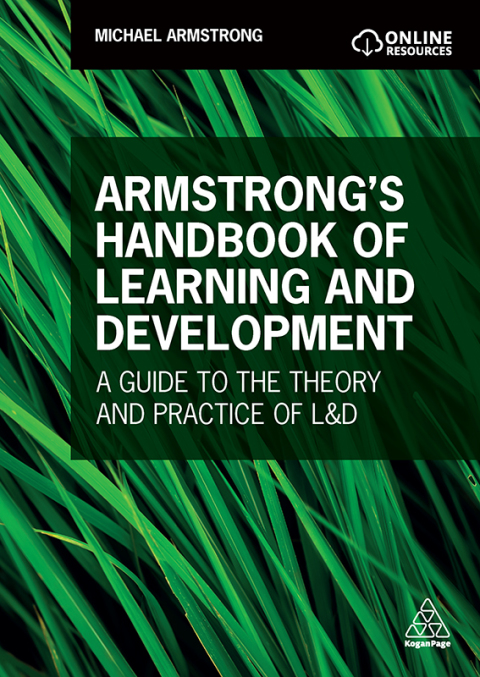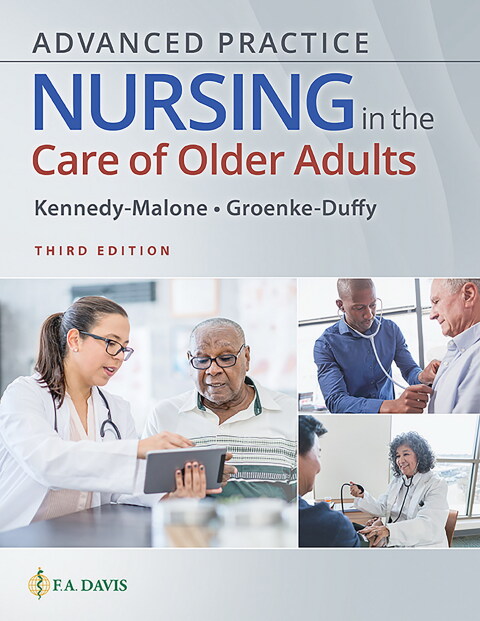Description
Efnisyfirlit
- List of Figures
- List of Tables
- About the Author
- Preface to the Seventh Edition
- Guide to this Book
- The Approach of this Book
- The Structure of the Book
- Special Features of the Book
- The Seventh Edition – What is New?
- Discover the Online Resources
- PART 1 Foundations of Qualitative Research
- 1 Why and How to Do Qualitative Research
- The Relevance of Qualitative Research
- Research Questions as a Starting Point
- Limitations of Quantitative Research
- Essential Features
- A Brief History of Qualitative Research
- Qualitative Research at the End of Modernity
- New Challenges: Diversity and Decolonizing Qualitative Research
- Subjectivity and Identity in Doing Qualitative Research
- 2 The Qualitative–Quantitative Distinction
- Relations of Qualitative and Quantitative Research
- Mixed-methods Research
- Quantitative and Qualitative Methods in Indigenous Research
- Methods’ Appropriateness as a Point of Reference
- 3 Theoretical Frameworks
- Positivism
- Constructionism
- Construction of Knowledge
- Feminism and Intersectionality
- Gender and Queer Studies
- Research Perspectives
- Symbolic Interactionism
- Ethnomethodology
- Structuralist Models
- Decolonization and Indigenous Research Methods
- Rivalry of Paradigms or Triangulation of Perspectives
- Common Features of the Different Positions
- 4 Methods and Data in Qualitative Research
- Research Programmes in Qualitative Research
- Major Methods and Types of Data
- Indigenous and Decolonizing Qualitative Research
- General Issues
- 5 Subjectivity, Identity and Texts in Qualitative Research
- Subjectivity and Identity – on Both Sides
- Text and Realities
- Text as World Making: First-degree and Second-degree Constructions
- Social Constructions as Starting Points
- Interpretation and Social Construction: Biography and Narrative
- PART 2 RESEARCH DESIGN
- 6 Formulating a Research Question
- Origins of Research Questions
- Cutting Questions to Size
- Specifying an Area of Interest and Delimiting the Issue
- Sensitizing Concepts and the Triangulation of Perspectives
- Types of Research Questions
- Good and Bad Research Questions
- Research Questions and Practice
- Research Questions in Indigenous and Decolonizing Research
- 7 Choosing and Constructing the Research Design
- How to Plan and Construct Designs in Qualitative Research
- The Six F’s of Designing Qualitative Research
- Qualitative Online Research
- Basic Designs in Qualitative Research
- Case Studies
- Comparative Studies
- Retrospective Studies
- Snapshots: Analysis of State and Process at the Time of the Investigation
- Longitudinal Studies
- Starting Points for Selecting a Research Design
- Criteria-based Comparison of the Approaches
- Designing Qualitative Indigenous Research
- Research Designs – How to Choose
- 8 Planning the Process in Qualitative Research
- Research as Linear Process
- The Concept of Process in Grounded Theory Research
- Linearity and Circularity of the Process
- Theories in the Research Process as Versions of the World
- The Research Process in Qualitative Research in General
- Planning Indigenous Qualitative Research
- 9 Ethics of Doing Qualitative Research
- The Need for Ethics in Research
- Codes of Ethics
- Ethics Committees
- How to Act Ethically
- Data Protection
- Qualitative Research Ethics – Necessary for Better Research
- 10 Using the Existing Literature
- How and When to Use the Literature
- How to Use the Theoretical Literature
- How to Use Theories
- How to Use the Empirical Literature
- How to Use the Methodological Literature
- Using Literature in Culturally Sensitive Research
- How to Use the Literature When Writing about Your Study
- Where to Search the Literature
- How to Search the Literature
- 11 Access, Field Relations and Participatory Research
- Relations in the Field
- The Problem of Access
- Role Definitions When Entering an Open Field
- Access to Institutions
- Access to Individuals
- Strangeness and Familiarity
- Strategies for Gaining Access – Examples
- Access and Recruiting for Qualitative Online Research
- Involvement and Participation of Members in Indigenous Research
- Participation as Methodological Approach
- 12 Sampling
- Frameworks of Sampling for Data Collection
- Defining the Sample Structure Beforehand
- Defining the Sample Structure Step by Step
- Sampling Step by Step as a General Principle
- Purposive Sampling
- Snowball Sampling
- Aims of Sampling: Width or Depth?
- Case Constitution in the Sample
- Sampling Decisions in the Research Process
- Sampling in Indigenous Research
- 13 Qualitative Designs with Multiple Methods
- Triangulation
- Triangulation Step by Step
- Issues Arising from Applying Triangulation
- Triangulation as Systematization of Qualitative Methods
- Mixed Methods
- Mixed Methods in Indigenous and Decolonizing Research
- New Concepts of Combining Approaches in/with Qualitative Research
- PART 3 VERBAL DATA
- 14 Collecting Verbal Data
- What Are Verbal Data?
- Why Verbal Data? Aims and Target Groups
- Types of Verbal Data
- What Are Interviews?
- What Characterizes Narratives?
- What Are Focus Groups?
- Starting Points for Selecting an Approach for Collecting Verbal Data
- Collecting Verbal Data: Selecting a Form of Interviewing
- 15 Doing Interviews
- How to Conduct Interviews
- Interviewing as Constructing a Framework for Listening
- The Focused Interview
- The Semi-standardized Interview
- The Problem-centred Interview
- Expert and Elite Interviews
- The Ethnographic Interview
- Mobile Interviewing
- Online Interviewing
- How to Analyse Interviews
- Criteria-based Comparison of the Approaches
- 16 Doing Focus Groups
- Group Interviews
- Group Discussions
- Focus Groups
- Online Focus Groups
- Focus Groups in Decolonizing, Critical and Indigenous Research
- How to Analyse Focus Groups
- Criteria-based Comparison of the Approaches
- 17 Using Narrative Data
- Narratives: Why and How? Backgrounds and Approaches
- The Narrative Interview
- The Episodic Interview
- Between Biography and Episode
- Joint Narratives
- Criteria-based Comparison of Narrative Approaches of Collecting Data
- How to Analyse Narratives
- Small Narratives and Constructionist Analysis
- Narrative Research Methods in Indigenous Postcolonial Research
- PART 4 DATA BEYOND TALK
- 18 Collecting Data Beyond Talk
- Aims of Collecting Data Beyond Talk
- Types of Data Beyond Talk
- What is Observation?
- What is Participant Observation?
- What is Ethnography?
- What is Virtual Ethnography?
- What is Visual Qualitative Research?
- What Are Documents?
- What Are Digital Data?
- Starting Points for Selecting an Approach for Collecting Data Beyond Talk
- 19 Observation and Ethnography
- Observation
- Participant Observation
- Ethnography
- Writing Field Notes
- Virtual Ethnography
- Criteria-based Comparison of the Approaches
- Analysing Observations and Ethnographies
- 20 Visual Data: Photography, Film and Video
- Photographs as an Instrument and Object of Research
- Film Analysis as an Instrument of Research
- Video Analysis in Qualitative Research
- Criteria-based Comparison of the Approaches
- 21 Documents as Data and Secondary Data Analysis
- What Characterizes Documents?
- Using Documents as Data: More than Textual Analysis
- Selecting Documents
- Constructing a Corpus
- The Practicalities of Using Documents
- How to Analyse Documents
- Analysing Internet Documents
- Secondary Analysis of Existing Qualitative Data
- 22 Digital and Social Media Research
- Social Media and Their Relevance
- Research Questions in Social Media Research
- How to Plan and Construct Designs in Qualitative Social Media Research
- Data for (Qualitative) Social Media Research
- Collecting Digital and Social Media Data with Qualitative Methods
- Using Twitter for Qualitative Research
- Using Facebook for Qualitative Research
- Using Blogs for Qualitative Research
- Collecting Digital Data with Smartphones
- Combining Virtual and Traditional Qualitative Research Methods
- Methodological Issues
- Big Data as a Challenge and a Threat for Qualitative Research
- Criteria-based Comparison of the Approaches
- PART 5 QUALITATIVE DATA ANALYSIS
- 23 Analysing Qualitative Data
- Aims of Qualitative Data Analysis
- What is Qualitative Data Analysis?
- Data Management
- Using Naturally Occurring or Elicited Data
- Methods or Data as Points of Reference
- What is Coding?
- What is Sequential Analysis?
- What is Interpretation?
- Starting Points for Selecting an Approach for Qualitative Data Analysis
- Criteria-based Comparison of the Approaches
- Methods of Qualitative Data Analysis – How to Choose
- 24 Transcription and Data Management
- Technological Progress and Problems of Recording Data
- Research Diaries
- Documentation Sheets
- Transcription
- Reality as Text: Text as New Reality
- Transcripts and Data in Indigenous Research
- Data Management
- 25 Grounded Theory Coding
- Grounded Theory Methodology
- Key Steps towards Grounded Theory Analysis
- Grounded Theory Analysis
- Grounded Theory Coding: Ways and Versions
- Which Approach to Choose?
- Grounded Theory Coding: Integrated Approach or Starting Point?
- 26 Thematic Coding and Content Analysis
- Thematic Coding
- Thematic Analysis
- Qualitative Content Analysis
- Criteria-based Comparison of Approaches
- 27 Analysing Naturally Occurring Data: Conversation and Discourse
- Using Naturally Occurring Data
- Conversation Analysis
- Discourse Analysis
- Objective Hermeneutics
- Interpretive Research in Decolonizing Studies
- Criteria-based Comparison of Approaches to Naturally Occurring Data
- 28 Using Software in Qualitative Data Analysis
- New Technologies: Hopes, Fears and Fantasies
- Ways of Using Software and Computers in Qualitative Research
- Why Use Software for Analysing Qualitative Data?
- History and State of Development of QDA Software
- Software for Analysing Qualitative Data: How to Choose?
- Examples: ATLAS.ti, NVivo and MAXQDA
- How to Use Software in Qualitative Research
- Software’s Impact on Qualitative Research: Examples
- More Recent Developments: CAQDAS 2.0
- PART 6 GROUNDING, WRITING AND OUTLOOK
- 29 Quality of Qualitative Research: Criteria and Beyond
- Selective Plausibilization
- Reliability
- Validity
- Objectivity
- Classical Criteria in Qualitative Research?
- Alternative Criteria
- Traditional or Alternative Criteria: New Answers to Old Questions?
- Quality Assessment as a Challenge for Qualitative Research
- Quality Criteria or Strategies of Quality Assurance?
- Strategies of Generalization in Qualitative Research
- Process Evaluation and Reflexivity
- Research Steps and Methods: Rules of Thumb and Key Questions
- Indication for Qualitative Research
- Quality Management
- 30 Writing Up and Assessment in Qualitative Research
- Writing and Reporting in Decolonizing Qualitative Research
- Reflexive Function of Writing
- Dissolution of Social Science into Styles of Writing?
- Pragmatic Function of Writing: Presentation of Results
- Legitimizing Function of Writing
- Making Qualitative Research Relevant
- Preparing a Viva and Assessment Based on Qualitative Research
- 31 State of the Art and the Future
- Qualitative Research Today
- Current Methodological Trends
- New Challenges: Internationalization, Diversity and Decolonization
- How to Learn and How to Teach Qualitative Research
- The Future of Qualitative Research: Art or Method?
- Glossary
- References
- Author Index
- Subject Index






Reviews
There are no reviews yet.